Related Research Articles
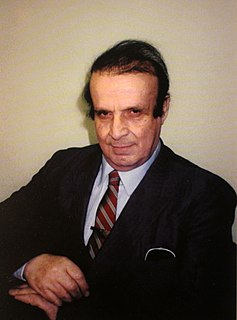
Vahakn Norair Dadrian was an Armenian-American sociologist and historian, born in Turkey, professor of sociology, historian, and an expert on the Armenian genocide. He was one of the first scholars to specialize in the field of genocide studies and he was also recognized as one of the key specialists on The Holocaust and genocide. However, Dadrian's approach to history has been criticized and some of the ideas which he advanced are not accepted by scholars in the twenty-first century.

Guenter Lewy is a German-born American author and political scientist who is a professor emeritus of political science at the University of Massachusetts Amherst. His works span several topics, but he is most often associated with his 1978 book on the Vietnam War, America in Vietnam, and several controversial works that deal with the applicability of the term genocide to various historical events. Lewy rejects that the word genocide is an appropriate label for either Romani genocide or Armenian genocide.
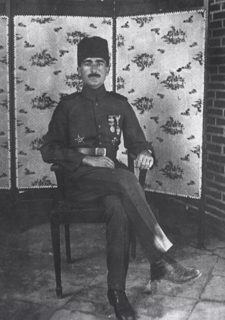
Halil Kut was an Ottoman Turkish military commander and politician. He served in the Ottoman army during World War I, notably taking part in the military campaigns against Russia in the Caucasus and the British in Mesopotamia. His greatest achievement was surrounding the British expeditionary force in Kut, for 163 days until they surrendered.
Justin A. McCarthy is an American demographer, professor of history at the University of Louisville, in Louisville, Kentucky. He holds an honorary doctorate from Boğaziçi University (Turkey), was awarded the Order of Merit of Turkey, and is a board member of the Institute of Turkish Studies and the Center for Eurasian Studies (AVIM). His area of expertise is the history of the late Ottoman Empire.

Richard Gable Hovannisian is an Armenian American historian and professor emeritus at the University of California, Los Angeles. He is known mainly for his four-volume history of the First Republic of Armenia.
Ronald Grigor Suny is an American historian and political scientist. Suny is the William H. Sewell Jr. Distinguished University Professor of History at the University of Michigan and served as director of the Eisenberg Institute for Historical Studies, 2009 to 2012 and was the Charles Tilly Collegiate Professor of Social and Political History at the University of Michigan from 2005 to 2015, and is Emeritus Professor of political science and history at the University of Chicago.

Stanford Jay Shaw was an American historian, best known for his works on the late Ottoman Empire, Turkish Jews, and the early Turkish Republic. Shaw's works have been criticized for their lack of factual accuracy as well as denial of the Armenian genocide, and other pro-Turkish bias.

The Memoirs of Naim Bey: Turkish Official Documents Relating to the Deportation and the Massacres of Armenians, containing the Talat Pasha telegrams, is a book published by historian and journalist Aram Andonian in 1919. Originally redacted in Armenian, it was popularized worldwide through the English edition published by Hodder & Stoughton of London. It includes several documents (telegrams) that constitute evidence that the Armenian genocide was formally implemented as Ottoman Empire policy.
Yair Auron is an Israeli historian, scholar and expert specializing in Holocaust and genocide studies, racism and contemporary Jewry. Since 2005, he has served as the head of the Department of Sociology, Political Science and Communication of The Open University of Israel and an associate professor.
Heath Ward Lowry is the Atatürk Professor of Ottoman and Modern Turkish Studies emeritus at Princeton University and Bahçeşehir University. He is an author of books about the history of the Ottoman Empire and Modern Turkey.

Institute for Armenian Research was a privately funded think tank sub-working group in Turkey established in April 2001 by the Center for Eurasian Strategic Studies. Ömer Engin Lütem was the chairman of ERAREN. In 2009, ERAREN was dissolved. It decided to carry out its activities as Center for Eurasian Studies (AVİM).
Donald George Quataert was a historian at Binghamton University. He taught courses on Middle East/Ottoman history, with an interest in labor, social and economics, during the early and modern periods. He also provided training in the reading of Ottoman archival sources.
Hans-Lukas Kieser is a Swiss historian of the late Ottoman Empire and Turkey, Professor of modern history at the University of Zurich and president of the Research Foundation Switzerland-Turkey in Basel. He is an author of books and articles in several languages.
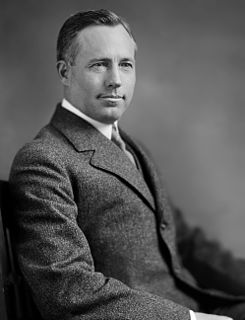
Jesse Benjamin Jackson was a United States consul and an important eyewitness to the Armenian genocide. He served as consul in Aleppo when the city was the junction of many important deportation routes. Jackson concluded that the policies towards the Armenians were "without doubt a carefully planned scheme to thoroughly extinguish the Armenian race." He considered the "wartime anti-Armenian measures" to be a "gigantic plundering scheme as well as a final blow to extinguish the race." By September 15, 1915, Jackson estimated that a million Armenians had been killed and deemed his own survival a "miracle". After the Armenian Genocide, Jackson led a relief effort and was credited with saving the lives of "thousands of Armenians."
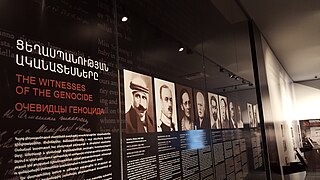
Witnesses and testimony provide an important and valuable insight into the events which occurred both during and after the Armenian genocide. The Armenian genocide was prepared and carried out by the Ottoman government in 1915 as well as in the following years. As a result of the genocide, as many as 1.5 million Armenians who were living in their ancestral homeland were deported and murdered.

George Edward White was an American Congregationalist missionary for the American Board of Commissioners for Foreign Missions for forty-three years. Stationed in the Ottoman Empire during the Armenian genocide as President of the Anatolia College in Merzifon, White attempted to save the lives of many Armenians, including "refused to tell" where Armenians were hiding so to save them from getting deported or killed. Thus he became an important witness to the Armenian Genocide.
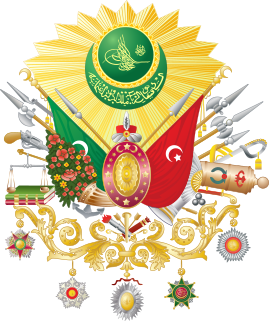
The Ottoman Empire came into World War I as one of the Central Powers. The Ottoman Empire entered the war by carrying out a surprise attack on Russia's Black Sea coast on 29 October 1914, with Russia responding by declaring war on 5 November 1914. Ottoman forces fought the Entente in the Balkans and the Middle Eastern theatre of World War I. The Ottoman Empire's defeat in the war in 1918 was crucial in the eventual dissolution of the empire in 1922.

"They Can Live in the Desert but Nowhere Else": A History of the Armenian Genocide is a book by Ronald Grigor Suny about the Armenian genocide, published by Princeton University Press in 2015. The book was praised as an accessible work that provides the academic consensus on why and how the Armenian genocide occurred.
The Armenian Massacres in Ottoman Turkey: A Disputed Genocide is a 2006 book by Guenter Lewy about the Armenian genocide in the Ottoman Empire. In the book, Lewy argues that the high death toll among Ottoman Armenians was a byproduct of the conditions of the marches and on sporadic attacks rather than a planned attempt to exterminate them.
Bibliography of the Armenian genocide is a list of books about the Armenian genocide: